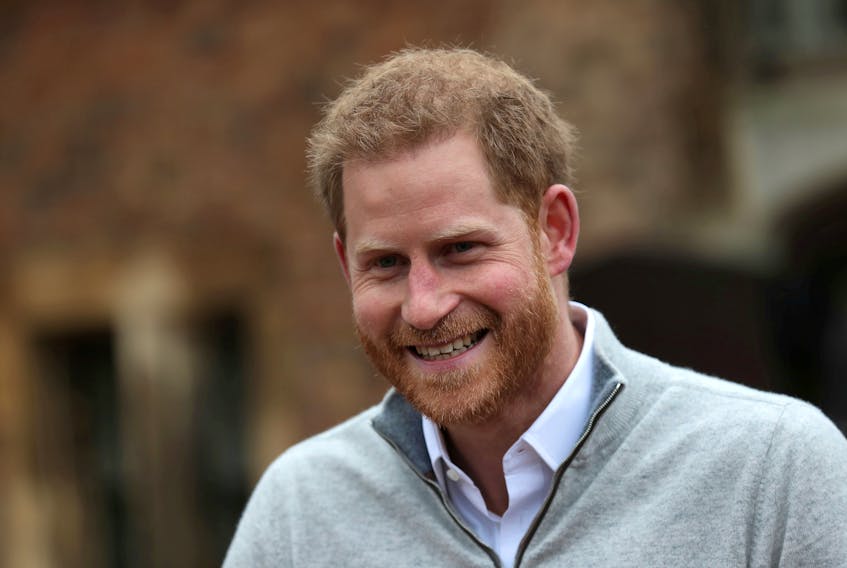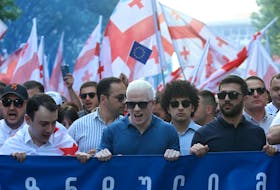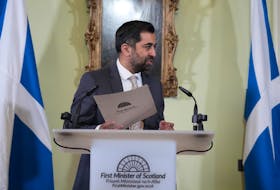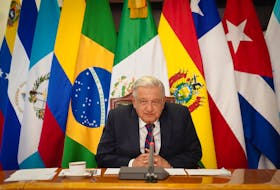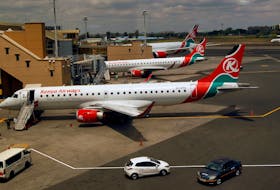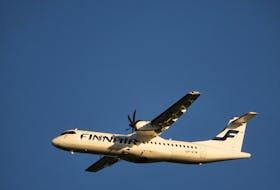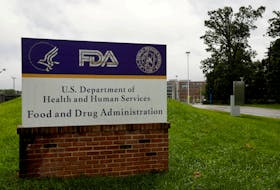The son of Prince Harry and Meghan, Duchess of Sussex, was a healthy 7lb, 3oz, when he was born at 5:26 a.m. Monday. His birth does little to disrupt the line of succession to the throne, other than tucking in a new person at number seven. But it highlights some unusual aspects of royal titles and their inheritance. In front of him in line to the monarchy are five princes (Charles, William, George, Louis and Harry) and one princess (Charlotte). Unlike his cousins, however, Harry and Meghan’s newborn is merely an earl. So far. The National Post’s Joseph Brean runs through the reasons, and the future possibilities.
Q: We do not know the baby’s name, but do we know its title?
A: That’s the easy thing about royalty. You can spot a title coming a mile away. Harry and Meghan’s new baby is Earl of Dumbarton, which is the title granted to Harry by the Queen on the occasion of his wedding. Had he been a girl, she would have been Lady Baby Mountbatten-Windsor, that being the surname of this family that does not typically use one. (Queen Elizabeth II is a monarch of the House of Windsor, and her husband Prince Philip’s chosen surname after abandoning his Greek and Danish royal titles was Mountbatten.) Peerages like the Dumbarton title cannot be passed from father to daughter.
Q: Why is Baby Sussex not His Royal Highness, Prince Baby?
A: As ever with the royals, the answer is complicated, sexist, and grandly historical. But basically it traces back a full century to an act of defence against revolution. In 1917, revolutions were threatening to take down royal families across Europe. There had also been a bit of title creep, as royal families thrived under the health and wealth of the industrial age. Simply put, there were too many royals around. The simple solution, as King George V saw it, was to limit the scope of the highest royal title short of the monarch — HRH, for his or her royal highness, styled as Prince or Princess So-and-So.
Q: How did he do that?
A: It would not have been fair to strip titles from the various people who already had a claim. But for all future royals, George V decreed that all grandchildren of the monarch could keep the title, but at the great-grandchild level, it would be restricted to the eldest living son of the eldest living son of the eldest living son of the monarch. In today’s royal family, that would mean Prince William’s eldest son George would be a prince, but not his siblings, and certainly not his new baby cousin.
Q: So something changed.
A: Quite so. Britain won the war, then another one, and the empire fell apart. The new Queen Elizabeth II became widely loved, and her popularity was only really threatened by her cold treatment, in life and death, of Princess Diana, whose eldest son, William, got married in 2011, and was about to have children of his own. Renewal was in the air. So the Queen issued a notice in 2012 “that all the children of the eldest son of The Prince of Wales should have and enjoy the style, title and attribute of Royal Highness with the titular dignity of Prince or Princess prefixed to their Christian names or with such other titles of honour.” Not long after that, the rule of succession was amended by parliament to prevent a princess being bumped out of line by a younger brother, as would have happened in the case of William’s younger children, Charlotte and her baby brother Louis.
Q: Could the Queen make a similar decree for Baby Sussex, to grant him the HRH title?
A: Yes, but she would do so in consultation with his parents. For example, when Anne, Princess Royal (a title reserved for the eldest daughter of the monarch since the 17th century) had her daughter Zara in 1981, the Queen offered the child the HRH title, but Anne declined. Likewise, the children of Prince Edward, the Queen’s youngest child, are permitted by George V’s rule to be called Princess Louise and Prince James. But Edward and his wife Sophie, Countess of Wessex, declined the titles, and their children go by Lady Louise Windsor and James, Viscount Severn.
Q: So grandchildren of the monarch are princes and princesses, but that’s as far as it goes automatically, which leaves Baby Sussex out?
A: Yes, as for example in the case of Princess Eugenie and Princess Beatrice, daughters of the Queen’s second son Prince Andrew. There are even a few people who rightly claim the HRH title by virtue of being grandchildren of George V, such as the Queen’s cousins Prince Michael of Kent and his wife Princess Michael of Kent, and Princess Alexandra. Curiously, these rules mean that if Charles becomes King, Baby Sussex could automatically gain the title, as grandson of a monarch. Although Charles could predecease his mother, in which case William would be the next king, which would make Baby Sussex the nephew of the monarch, who would not automatically be entitled to the title. See? Quite simple really.
• Email: [email protected] | Twitter: josephbrean
Copyright Postmedia Network Inc., 2019

